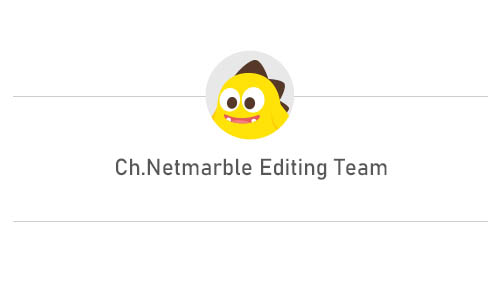Let's briefly review Netmarble's proprietary blockchain ecosystem MBX. It was first unveiled at the end of February, opened its official website, and introduced the first white paper in early March. It was also around this time that blockchain content was presented in the first game, ' A3: Still Alive (Global)' belonging to the MBX ecosystem. In mid-March, with the official launch of the service, we launched 'MBX Wallet,' which provides functions such as storing, exchanging, and swapping MBX tokens.

And by the end of April, DEX(Decentralized Exchange) service was added to the MBX Wallet. Technically, it can be said that the addition of the DEX function was the official launch of the MBX ecosystem. Netmarble once mentioned MBX as a 'game-oriented blockchain ecosystem.' With the DEX function, the game token "Inetrium" obtained from A3: Still Alive (Global) can be exchanged for the MBX token, giving the impression that the cornerstone of the concept, as mentioned earlier, has been solidified.
The addition of the DEX function is an essential milestone in revitalizing the MBX ecosystem. It's easy to understand to call it an "exchange" in that you can buy, sell, or exchange coins or tokens, but why does " decentralization " come before it? There are also 'centralized' exchanges on the contrary. What are the differences between the two? Let's look at what a decentralized exchange is and how the function works in MBX Wallet.

Centralization vs. Decentralization
Before moving on to DEX, let's first talk about CEX(Centralized Exchange) centralized transactions. CEX is a standard trading method in everyday life. When you buy and sell stocks, you go through firms or organizations like banks for financial transactions, including foreign currency exchange. The centralized transaction method allows a trusted third party to handle the process when buying and selling something.
On the other hand, DEX is a direct transaction without going through a third party. The intermediary role played by a third party is replaced by a blockchain-based smart contract, which automatically processes transactions according to pre-programmed conditions. As a result, you don't need credit for non-existent third parties and mutual trust like daily direct transactions such as interpersonal 'used product' sales.

DEX does not require third-party involvement. Photo by Pixabay
And MBX
As mentioned above, all asset transactions are made directly between users through blockchain-based smart contracts. Since there is no arbitrator in the transaction, the information and asset of the users are not collected nor concentrated in one place. All asset accumulation and transactions are made through an individually encrypted user's wallet, reducing the risk of the massive damage caused by hacking.
Of course, the DEX is not entirely flawless. For example, suppose a user accesses his wallet or loses the password required for an asset transaction. In that case, there is no way to recover it since the decentralized exchange does not store nor save the information. You have to be much more careful than managing your wallet in real life. In addition, it lacks user convenience compared to the CEX-based exchange, which has accumulated service know-how for a long time. It is impossible to exchange the assets for a "legal currency" because DEX only handles cryptocurrency.

Don't forget the password!
DEX function of MBX Wallet has to share some of the limitations. However, MBX users don't have to worry about user convenience. The core significance of the exchange is to buy, sell, and virtual exchange currency, and the DEX feature of MBX Wallet is very easy to use.
In addition, since MBX tokens were recently listed on Bithumb and Bitrue, a primary CEX service, users' access to MBX tokens has also improved significantly.

DEX and CEX are complementary
Decentralization will accelerate MBX
With the DEX feature, users can now conveniently use all the processes of the token swap, including exchanging game tokens such as Inetrium(ITU) to a bridge token MBXL, and then exchanging them with MBX token at a 1:1 ratio.
Recently, MARBLEX held an AMA to commemorate the addition of DEX functions. There were also questions about the "decentralization" of the ecosystem, which is closely related to the addition of DEX functions, along with re-confirmation of the business direction revealed in the existing road map, such as the upcoming blockchain game lineup, token issuance, and staking.
MARBLEX said, "It may seem that our ecosystem is not decentralized. We have adopted some centralized approaches for user convenience, such as customer services, which helps users with the errors they experience." Still, the direction that MARBLEX heads toward is 'decentralization,' which will be possible in the future with stabilized system and increased user base. The significance of introducing the DEX function of MBX Wallet is that it is the first step toward decentralization.
So far, we've looked at the meaning and pros, and cons of DEX functions added to MBX Wallet.
Next time, we will provide more vivid information to see how Netmarble's first blockchain game, A3: Still Alive (Global), has applied to the MBX ecosystem.


